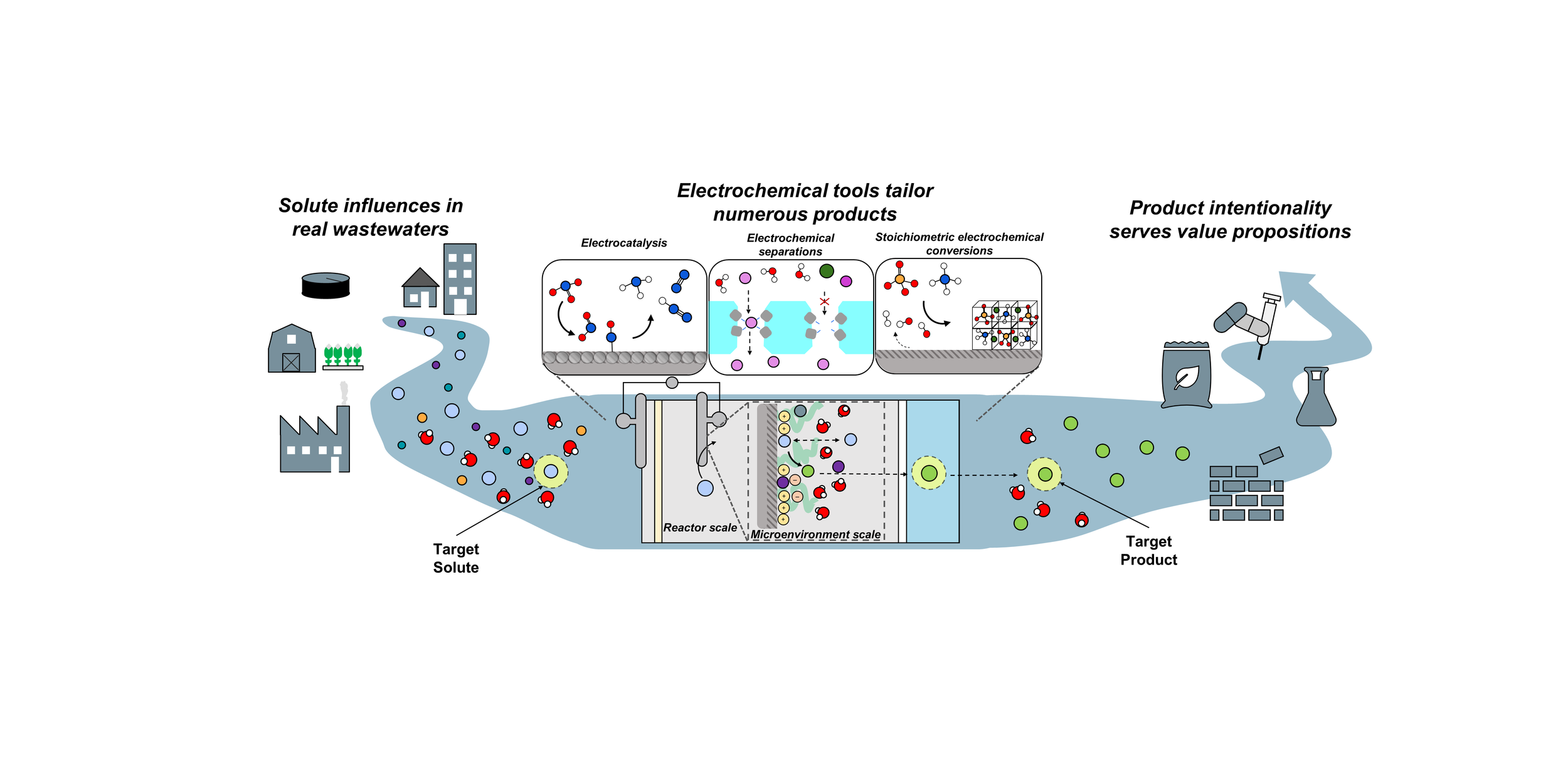Reactive Separations for Wastewater Refining

Resource Recovery to Mediate Element-Specific Circular Economies
Reimagining liquid waste streams as resources can lead to recovery of valuable products and more efficient, less costly approaches to reducing harmful discharges to the environment. Pollutants in effluent streams can be captured and used as valuable inputs to other processes. For example, municipal wastewater contains resources like energy, water, nutrients, and metals. The Tarpeh Lab develops and evaluates novel approaches to resource recovery from “waste” waters at several synergistic scales: molecular mechanisms of chemical transport and transformation; novel unit processes that increase resource efficiency; and systems-level assessments that identify optimization opportunities. We employ understanding of electrochemistry, separations, thermodynamics, kinetics, and reactor design to preferentially recover resources from waste. We leverage these molecular-scale insights to increase the sustainability of engineered processes in terms of energy, environmental impact, and cost.
